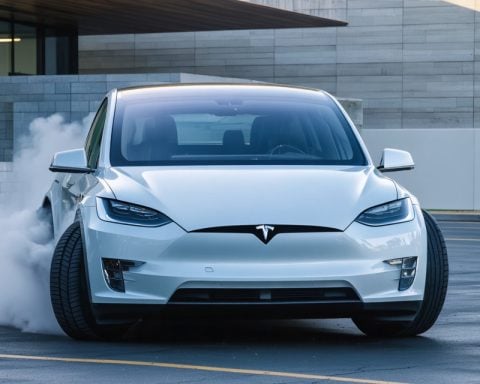Chinese Dominance in Electric Trucks
The electric vehicle (EV) revolution is not limited to passenger cars; Chinese companies are now setting their sights on the electric truck sector. Although they face hurdles like foreign tariffs and quality perceptions, their strategies might still pave the way for success in this burgeoning market.
Currently, electric trucks make up less than 1% of global sales, with China accounting for a remarkable 70% of this share in 2023, according to the International Energy Agency (IEA). Experts believe that advancements in technology and favorable policies could lead to increased adoption in the coming years.
Start-ups like Windrose, founded by industry pioneers, are eager to disrupt the traditional trucking landscape. Despite international sanctions on EVs from China, manufacturers such as BYD and Beiqi Foton are exporting trucks to countries including Italy, Spain, and Mexico, with assembly plants established overseas.
Chinese electric trucks are often priced competitively in emerging markets. However, concerns linger regarding their performance and durability compared to established brands from Europe and Japan. The median operational range for these trucks is currently lower than that of their competitors.
To overcome these obstacles, Chinese manufacturers can leverage their strong domestic supply chain. Initiatives like battery-swapping technology from companies like CATL aim to reduce charging times, enhancing usability. Despite geopolitical challenges, the goal remains clear: to solidify China’s position as a leader in the global electric truck industry while scaling globally.
Chinese Electric Trucks: The Future of Sustainable Transport
The global shift towards electric vehicles (EVs) is expanding beyond passenger cars, with Chinese companies making significant inroads into the electric truck market. This burgeoning sector presents unique opportunities and challenges, as Chinese manufacturers strive to establish themselves as key players despite facing international tariffs and quality skepticism.
Market Analysis and Trends
As of 2023, electric trucks account for less than 1% of total global vehicle sales, but China significantly influences this statistic, contributing an impressive 70% of electric truck sales, according to the International Energy Agency (IEA). This domination is expected to grow as advancements in technology and supportive governmental policies encourage widespread adoption.
The market for electric trucks is on the rise, with a compound annual growth rate (CAGR) projected at around 20% in the next five years, reflecting a broader trend towards sustainability in logistics and transportation.
Key Features and Innovations
1. Battery-Swapping Technology: Chinese firms, notably CATL, are at the forefront of developing battery-swapping technology, which significantly reduces downtime typically associated with charging stations. This innovation enhances the convenience and operational efficiency of electric trucks.
2. Cost Efficiency: Many Chinese electric trucks are competitively priced, particularly in emerging markets. Their affordability is a crucial selling point, especially as logistics companies seek to reduce costs and improve sustainability.
3. Advanced Manufacturing: Leveraging a robust domestic supply chain, Chinese manufacturers can quickly adapt to market demands and innovate in design and functionality. This agility may provide an edge over traditional truck manufacturers from Europe and Japan.
Pros and Cons of Chinese Electric Trucks
Pros:
– Competitive pricing in emerging markets.
– Rapid advancements in battery technology and manufacturing processes.
– Government support through favorable policies promoting EV use.
Cons:
– Existing concerns about performance and durability compared to established brands.
– Limited operational range compared to some competitors, which can hinder long-haul transport.
– Negative perceptions due to international sanctions and quality doubts.
Use Cases and Compatibility
Chinese electric trucks are increasingly being used in urban logistics and short-haul deliveries, where their operational range meets the demands of city environments. As local governments push for cleaner air initiatives and reduced emissions, electric trucks from manufacturers such as BYD and Beiqi Foton are finding a foothold in major cities.
Pricing Insights
While specific pricing varies, many Chinese electric trucks start at lower price points compared to their Japanese and European counterparts, making them an attractive option for cost-conscious logistics companies. For instance, some models are priced up to 30% lower than equivalent models from established brands.
Conclusion
As the electric truck market evolves, China’s assertive push highlights its ambition to lead in this transformative sector. Innovations in battery technology, strategic pricing, and strong government support are paving the way for increased adoption. However, overcoming perceptions of quality and extending the operational capabilities of their trucks will be essential for Chinese manufacturers to maintain their competitive edge on the global stage.
For more insights into the electric vehicle market, visit IEA.


















